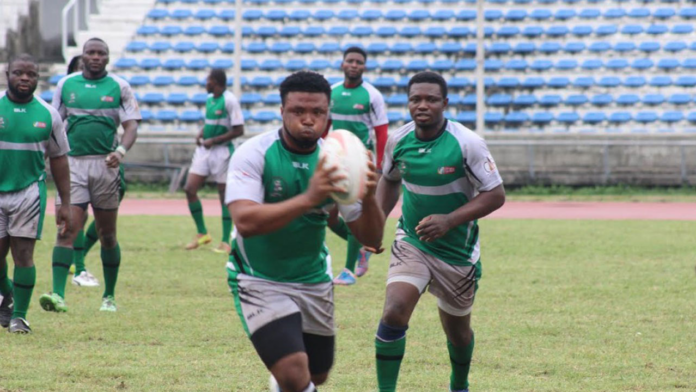
[ad_1]
Alaro City, the most investor-friendly free zone in Nigeria, has announced its official sponsorship of the Nigerian Rugby League Association (NRLA) and the Nigerian Women’s Rugby Team.
The partnership underscores Alaro City’s commitment to supporting grassroots sports development and empowering women in sports.
The Nigerian Women’s Rugby Team recently qualified for the 2025 Rugby League World Cup, marking a historic moment for the nation.
This achievement not only highlights the growing potential of Nigerian athletes on the global stage but also serves as an inspiration for African women in sports.
According to a report by the International Rugby Board (IRB), only 28% of registered global rugby players are women and this figure is even lower across Africa. Yet, the participation rate has been growing exponentially, with women’s rugby being one of the fastest-growing sports in the world.
Nigeria is one of the most populous countries in Africa and the team’s success could spark a wider movement, encouraging more women to engage in sports and participate in international competitions.
“We are thrilled to partner with the NRLA and the Nigerian Women’s Rugby Team at this crucial moment in their journey,” said Yomi Ademola, Managing Director at Alaro City.
“Qualifying for the Rugby League World Cup – the first time an African team has done so – is an extraordinary milestone for Nigeria, underscoring the nation’s growing influence in the world of sports. This achievement is a breakthrough for all African female athletes, representing a triumph of determination and talent in a field where gender barriers are being overcome. By supporting the team, we aim to foster a culture of excellence and resilience that mirrors the values we uphold in Alaro City.”
Less than 10% of teams that participated in the 2022 Rugby League World Cup hailed from Africa. Alaro City’s sponsorship aims to bridge this gap by investing in sports infrastructure, training, and resources to give African athletes a stronger foothold on the global stage.
[ad_2]
Copyright for syndicated content belongs to the linked Source link

